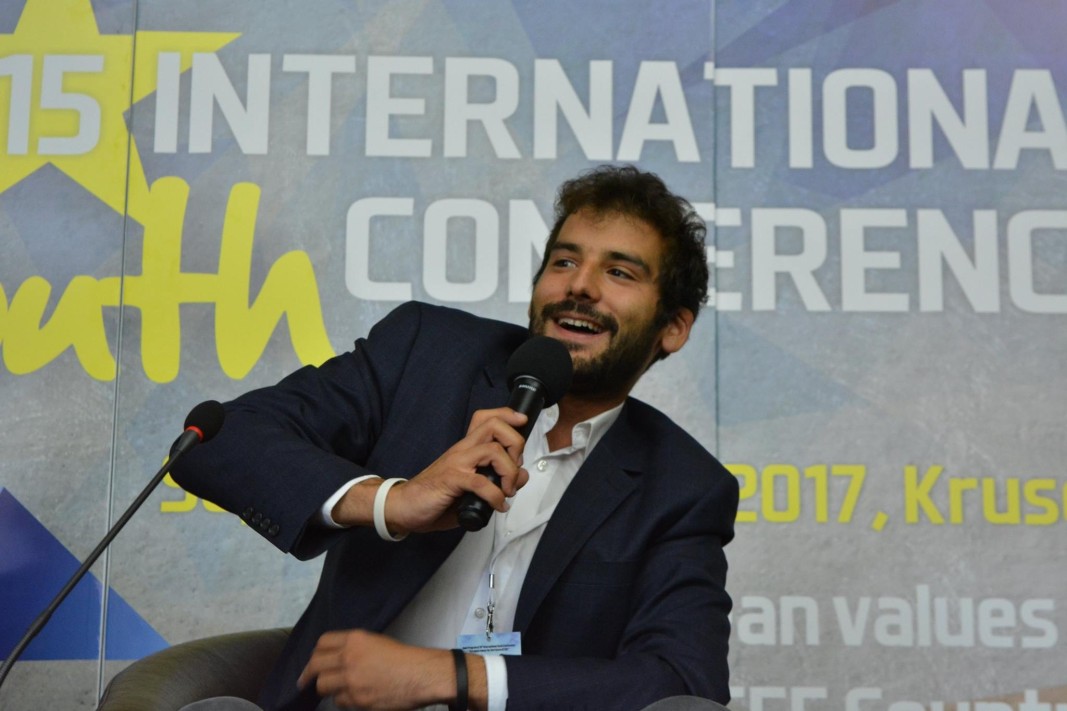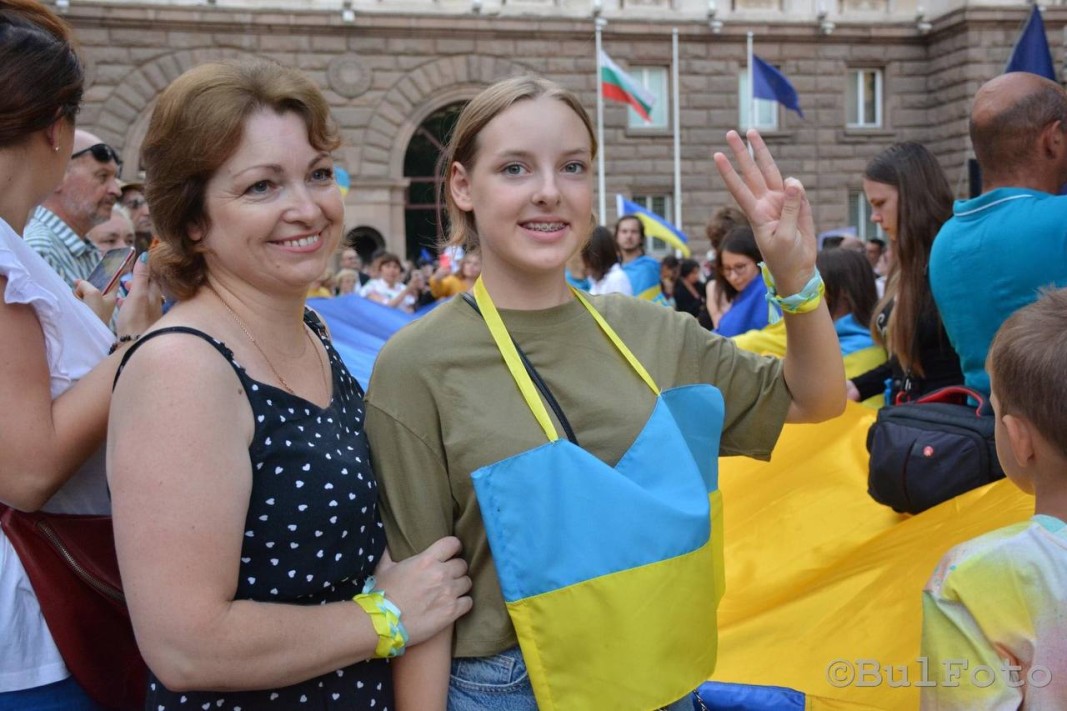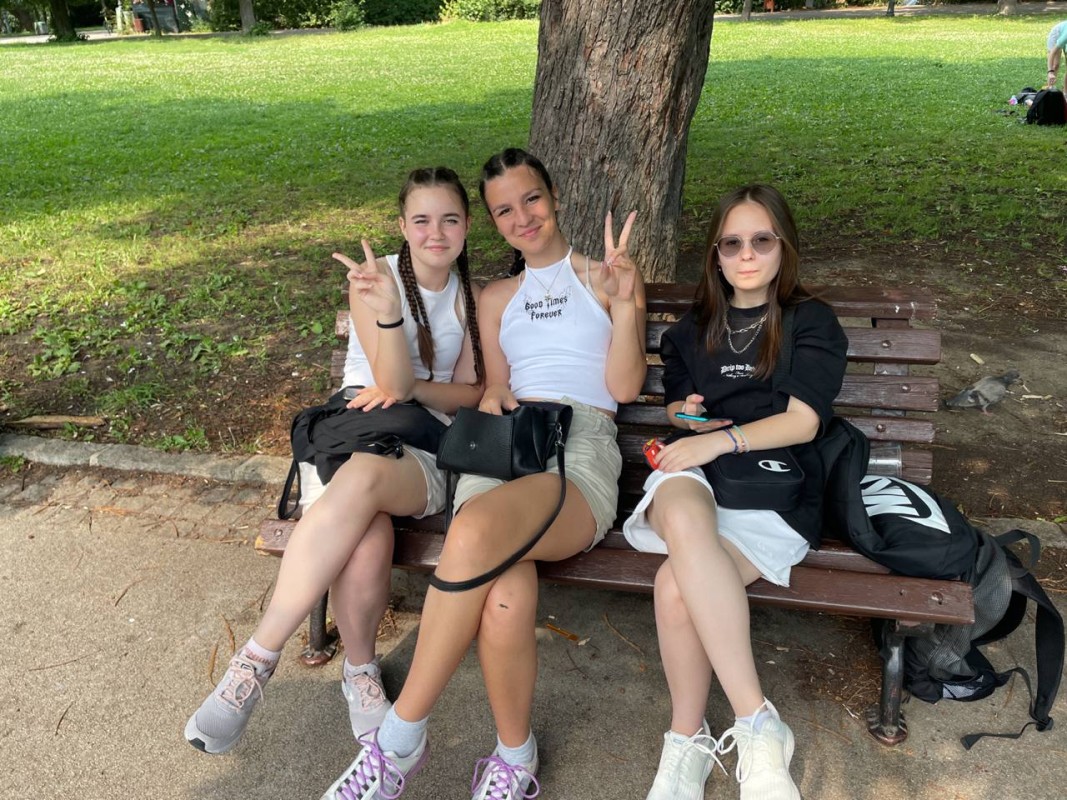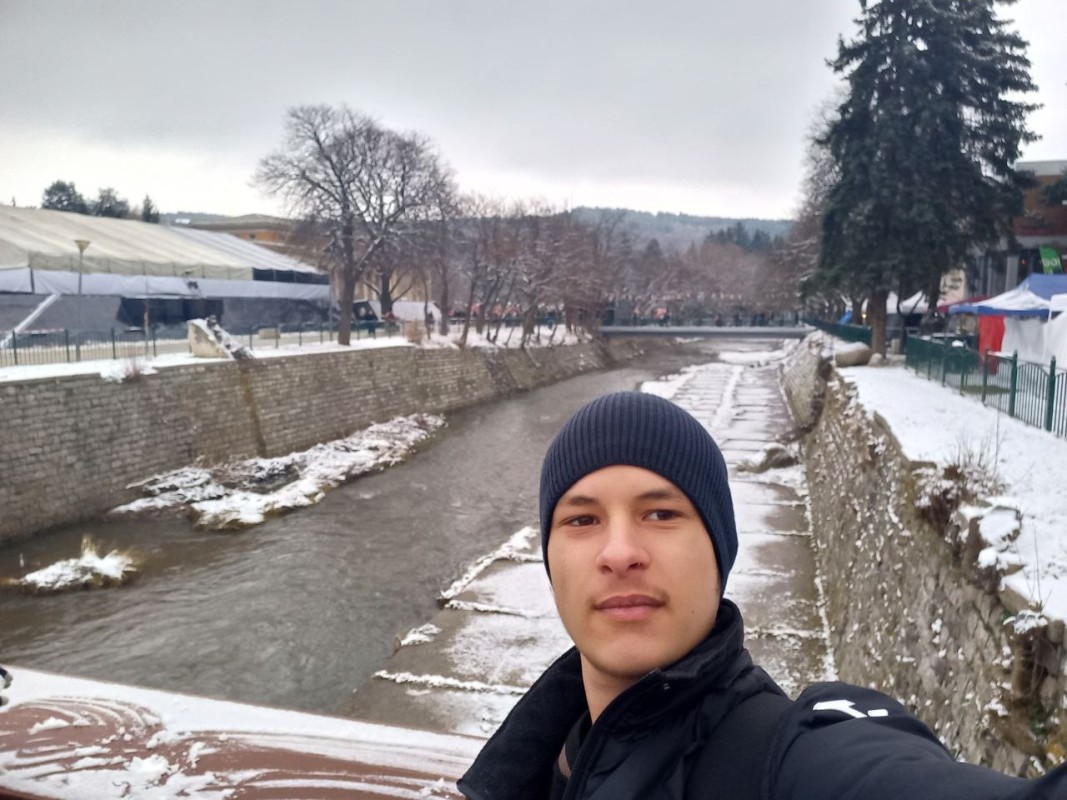A hug can be a gesture from the universal language of empathy, understanding and support, it can dissuade or motivate us to make one decision or another. But for some, it can be a lifeline, a safe haven where they can feel protected and safe, albeit for a brief spell in time. Arms Wide Open is a Bulgarian association that provides just such a safe haven. Set up more than a year ago, a little after the start of Russia’s war in Ukraine in February 2022, the association brings together people from Russia, Moldova and Ukraine, for whom helping people in need comes first. One of their initiatives is connected with summer classes for children aged 6 to 17, where they can study or improve their Bulgarian language skills.
The afternoons are set aside for outings, trips to different locations so they can come in contact with Bulgarian nature and get to know the country’s history, traditions and culture. The aim is to help these children, who have been forced out of their countries, to spend a summer that will touch their hearts, leaving a memory for many years to come.
“96 children attended the summer school last year, and this year their number is 115, about a dozen are refugees from Syria, Iran and Iraq,” said Dimitar Dimitrov from the association in an interview with Radio Bulgaria: 
“They are very well received by the Ukrainian majority at our summer school. It gives us such pleasure to see how tolerant, how willing to accept and to help these children can be, some of whom don’t speak Bulgarian well enough yet. This is the place to say that our team of Bulgarian language teachers and the pedagogues organizing the afternoon programme are an incredible mixture of inspired individuals who are doing their very best.”
The children frequently surprise them with their creativity and teamwork. This is the kind of synergy the kids demonstrated during a special event in Sofia, at which they presented the most important landmarks in the Ukrainian cities where they were born – Odessa, Kharkiv, Kherson, Melitopol, Kyiv, Donetsk etc. 
“I’ve been here since March last year,” says teenager Tetyana Malanchuk. “I’ve been in Sofia the whole time and I really love the city, its atmosphere, and I have to admit it reminds me of my home town Kherson. I haven’t been to a Bulgarian school, so I don’t know much about Bulgaria’s history. I know Levski is a revolutionary, and I have been to the museum dedicated to him in Lovech. I know there’s a football team named after him.”
Viktoria Aksionenko is from Melitopol, and she knows there are Bulgarians living in her town, though she says that, unfortunately, she doesn’t know many of them:
“I know very little about the Bulgarian diaspora, and when I had to make a presentation about our city, I found out that in the city, out of respect and with Bulgarian funding, a monument to Hadji Dimitar has been built. They have a newspaper where they discuss all kinds of things, though I don’t know much more.”
She says what impressed her most when she arrived in Sofia were its many museums. She says her favourites are the museum of illusions and the National Palace of Culture - a park and a cultural hub, which all three people we talked to say they like. 
One of them, Maksim Didenkul is from Odessa, his mother is a Bessarabian Bulgarian, but he didn’t know much about this community except that it is big and very close-knit. One of his favourite spots in the Bulgarian capital is North Park, and the reason for this is that:
“There are very few people there, you can take a walk there and reflect, and listen to the birdsong. Otherwise, in Pernik we went to a wonderful festival, Surva. I’ve been to Varna, I really liked it there too.”
All three people from Ukraine we talked to say they would like to stay in Bulgaria when the war in their country is over. Hearing this, Dimitar Dimitrov says:
“When I see children of different ethnicity and religions share and learn from one another I see how much sense there is in what we are doing every day of this hot summer,” he says. “When you are working with people you always try to help them become the best possible version of themselves. It is so satisfying to help them hone their skills, work on their weaknesses without being afraid of them. It is important to me to help these children understand that Bulgaria will be their home even when the war is over, and that they will have the choice of returning to Ukraine, or making Bulgaria their home from home.”
Translated and posted by Milena Daynova
Photos: courtesy of Dimitar Dimitrov, Arms Wide Open
On May 10 and 11, the interactive science and technology centre "TechnoMagicLand" at Sofia Tech Park will host a national Rubik's Cube speed-solving competition . The event is part of the official calendar of the World Cube Association (WCA) and is..
The "Roses of Bulgaria" festival will be held at the Museum of Emigration in Sao Paulo, Brazil on May 10. The cultural event is organized by the Bulgarian School in Sao Paulo, jointly with the Embassy of Bulgaria in Brazil and at the initiative of the..
The spring St. Nicholas Day gathered hundreds of Burgas residents at Troikata Square , where cooks offered delicious fish soup, mussels, paella and pizza with octopus, reports BNR - Burgas. The feast in honour of the celestial patron saint of..
The FameLab International Science Communication Competition aims to discover, train and give a platform to the world’s most promising new scientists. The..
"United We Stand" - Bulgaria's national motto - will be put into action on May 8 by the Bulgarian community in New York City, amid the realities of the..
"We may be 10 hours behind Bulgaria, but our compatriots on the West Coast of the United States deeply cherish everything that connects them to Bulgaria..

+359 2 9336 661
